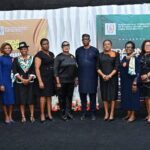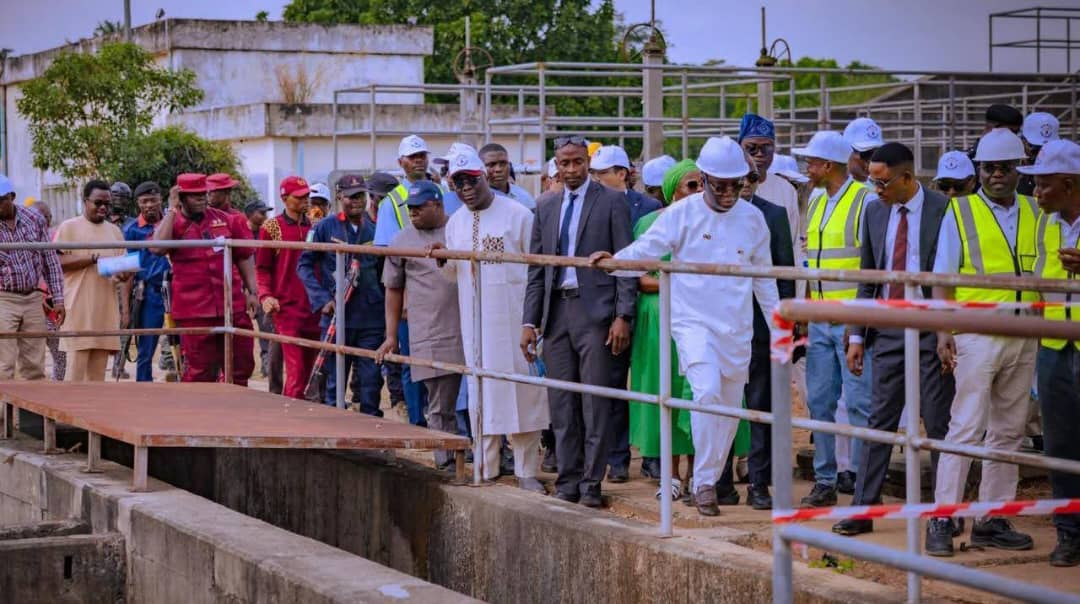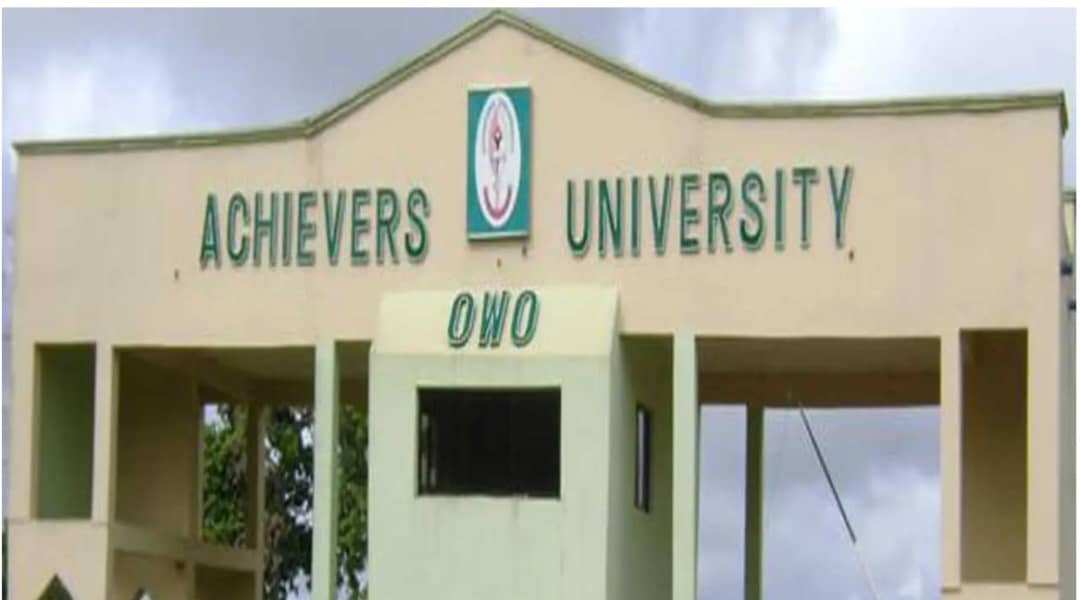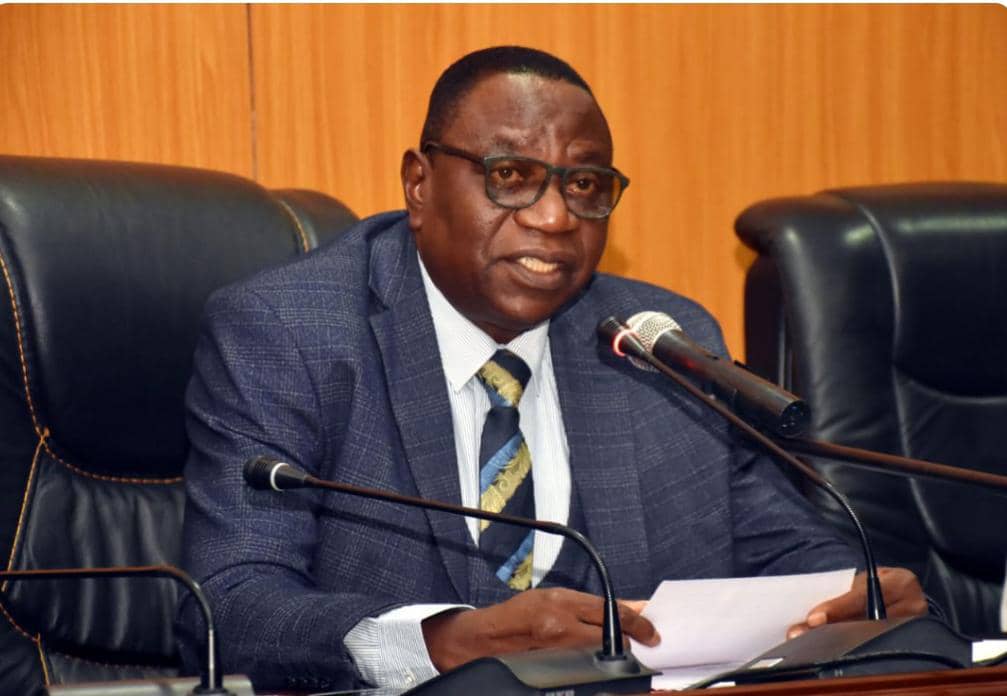By: Our Reporter
The Digital Economy Bill, when amended and passed into law, will align Nigeria with other developed countries exploiting the digital economy for development, stakeholders have said.
The stakeholders made this submission at the Stakeholders Engagement on the National Digital Economy Bill, held in Akure.
The engagement was organised by the Federal Ministry of Communications, Innovation and Digital Economy, in collaboration with the Ondo State Government, the National Information Technology Development Agency, and the Nigeria Digital Identification for Development Project.
The purpose of the engagement was to deliberate on the bill and gather insights from stakeholders to align it with Nigeria’s digital development project.
The bill is also intended to enable accessible and inclusive digital transformation across the country, enhance reliability, and improve the integrity of Nigerian digital service delivery across sectors.
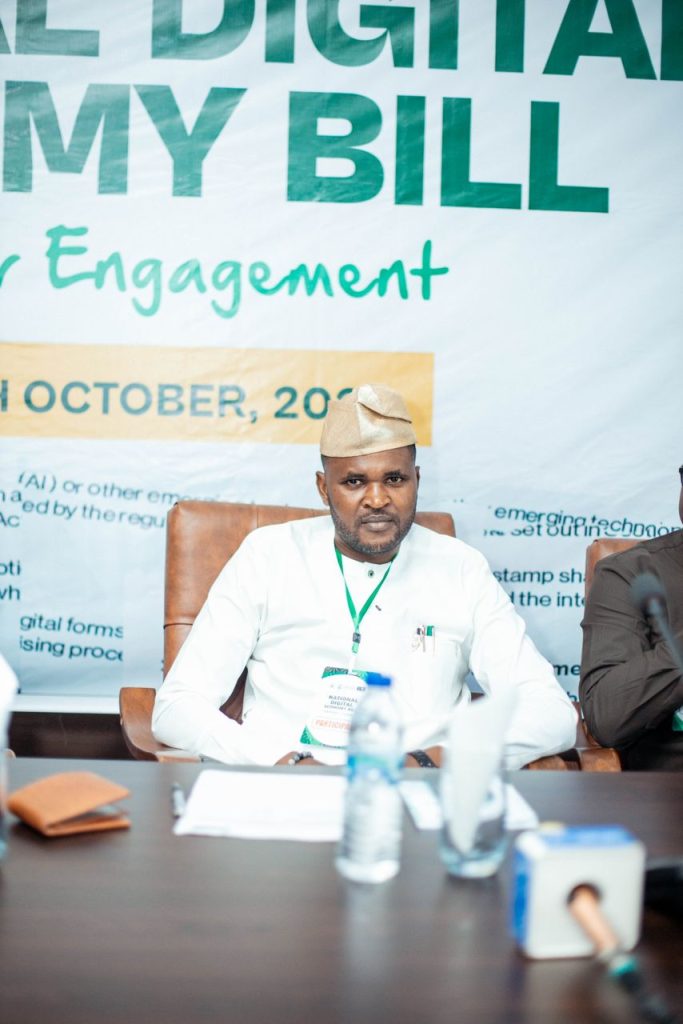
The participants, comprising academics, tech experts, directors of government agencies, students, and other stakeholders in the tech space, provided inputs that will help promote efficient governance structures and enhance national integration of digital infrastructure, enabling the bill to achieve its full potential.
Speaking at the event, the Ondo State Governor, Hon. Lucky Aiyedatiwa, said the bill signals a bold step for Nigeria.
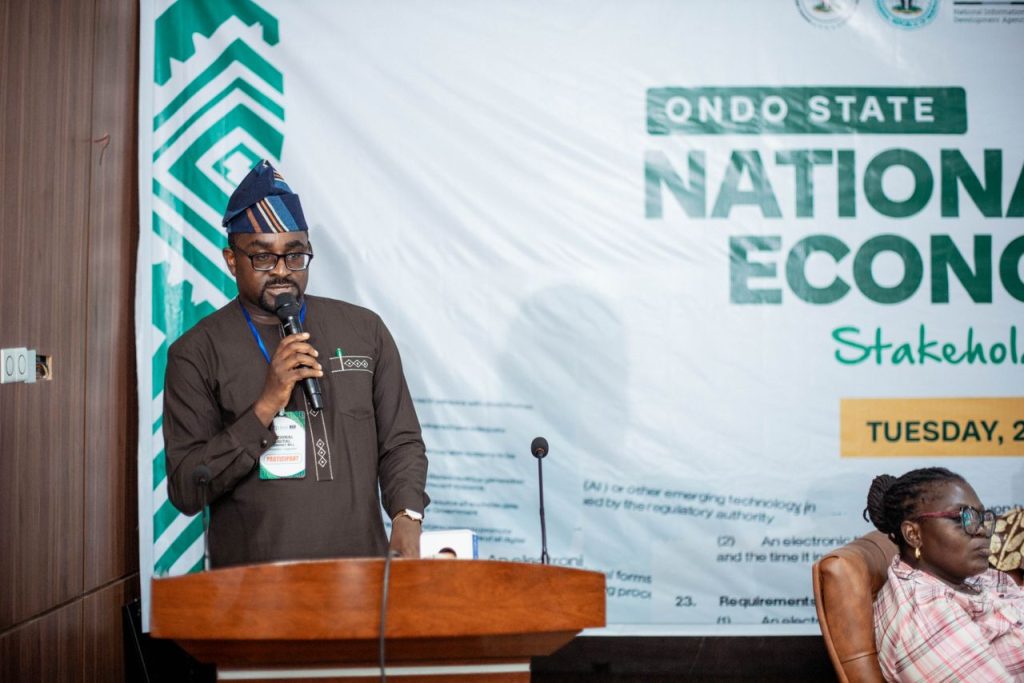
Aiyedatiwa stated that it would promote and grow Nigeria’s economy and support effective e-governance, in addition to expert-oriented capacity, improved national trade and services balance, and accelerated digital transformation for public institutions to ensure efficient service delivery.
He added that the bill will promote service delivery, openness, and accountability in public service provision.
Aiyedatiwa noted that the engagement reinforces collaboration by bringing everyone together to meet the diverse needs of citizens and institutions across Nigeria.
Represented by his Senior Special Assistant on ICT, Hon. Tomide Akinribido, the Governor highlighted that Ondo State has been preparing its citizens for digital economic growth through training and support in digital skills.
He added that no fewer than 100 participants are being trained in digital skills in Ondo State to ensure the state’s economy becomes technology-driven.
“For 2025, the State government is planning to equip 40,000 residents with various ICT skills, ranging from data analysis to programming, coding, software development, and more.”
He said digital literacy skills are being integrated into the curriculum for primary and secondary schools across the state.
He revealed that Ondo State would soon host an ICT summit as part of efforts to boost the state’s digital economy.
An overview of the bill was presented by the resource person, Barrister Bankole Oke.
Oke stated that the bill also aims to regulate the digital economy space and address issues relating to cybersecurity measures, data privacy, and e-governance.
He said the vision of the bill is to ensure Nigeria remains a global leader in the digital economy, streamline governance, and make service delivery efficient.
The legal practitioner identified the key areas of the bill as including electronic transactions and recording, digital governance infrastructure, consumer protection, and enhancement of public sector accountability.
Also, the Speaker of the Ondo State House of Assembly, represented by Hon. Felix Afe from Akoko Northwest Constituency 2, said the bill will promote efficiency, prompt service delivery, and strengthen Nigeria’s digital economy.
Afe added that the necessary adjustments suggested by stakeholders and experts should be incorporated into the bill to make it comprehensive and effective when it becomes law.
In his comment, the Chairman, Ondo State Internal Revenue Service, ODIRS, Mr Adebayo Olorunwa Rojugbokan highlighted how the agency has integrated digitization into its operations.
While nothing that the many Nigerians, especially young ones can general income through the digital space, Rojugbokan said the bill will provide the needed legal framework to protect businesses, consumers and also enhance service delivery in public institutions.
The Ondo State Chairman of the Nigeria Union of Journalists (NUJ), Prince Leke Adegbite stressed the need for government to make access and use of internet and data more affordable to all Nigerians.
Speaking on behalf of the Vice-Chancellor of the Federal University of Technology, Akure, the Dean of Computing and Professor of Cybersecurity, Prof. Boniface Kayode Alese, said Nigeria needs a robust database for the digital economy to thrive and for the Digital Economy Bill to succeed.
Alese stated that the bill, combined with the Cybercrime Act and the Nigeria Data Protection Regulation, will significantly support Nigeria’s digital economy.
He said the bill will provide the necessary legal framework for digital operations and transactions in Nigeria, stressing the need for relevant stakeholders to provide insights to ensure the bill serves its intended purpose without confusion.
Alese suggested the development of tech hubs across the country.
Dr Mrs Aladelola Olukemi, the Permanent Secretary of the Ondo State Information Agency, represented by the Director of Civic Data Management, Mrs Ayetan Titilayo, encouraged the stakeholders to work together to ensure the bill succeeds and that Nigeria establishes a dependable digital economy.
Participants who deliberated on the provisions of the bill identified certain grey areas that need to be addressed, including the vagueness of some provisions, data collection, protection and use, offences and penalties, and language issues, among others.




